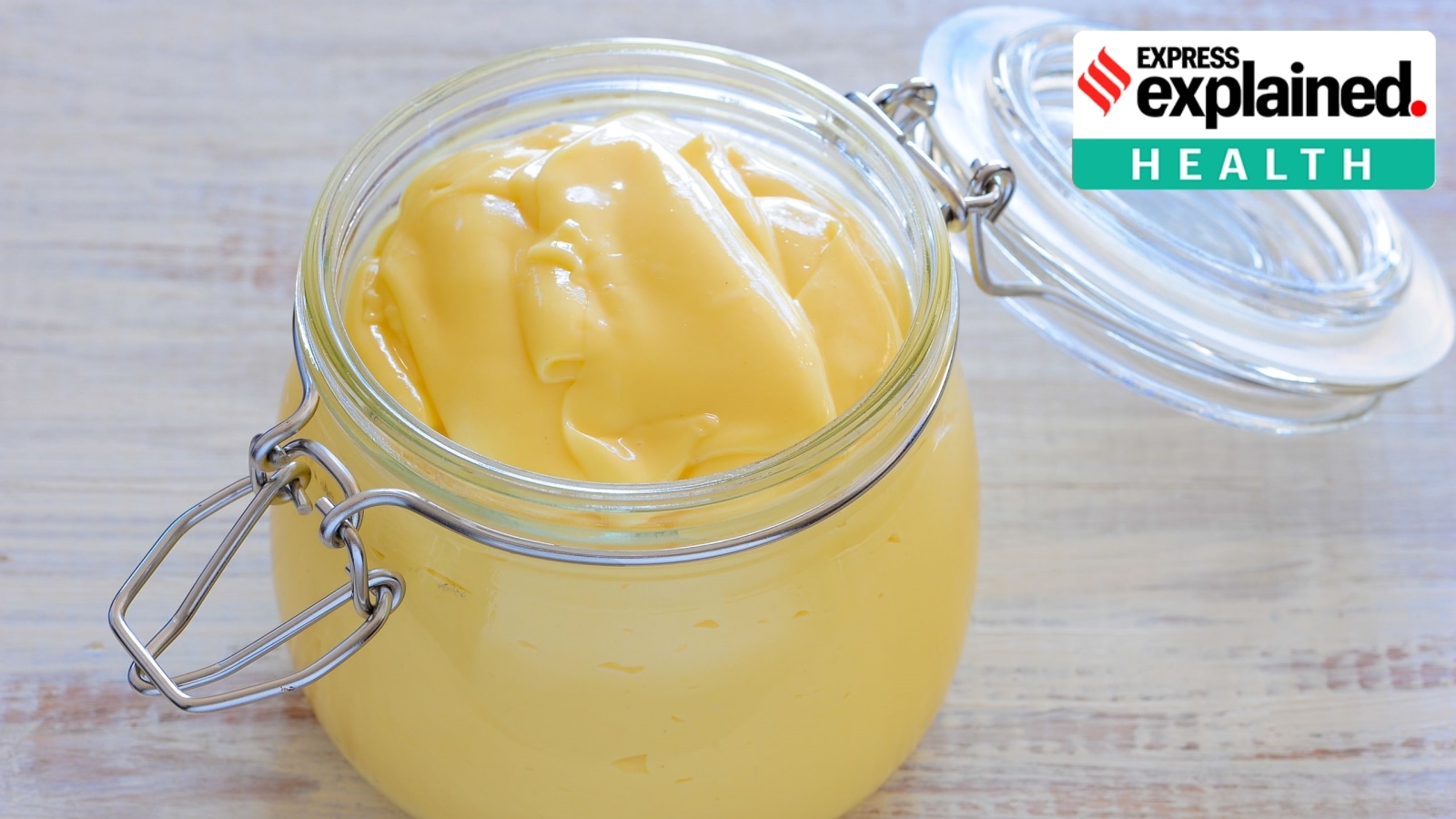The Tamil Nadu government has banned the manufacture, storage, distribution, and sale of mayonnaise made using raw eggs, citing public health risks. The ban came into effect on April 8, and will remain in force for one year.
The government notification banning mayonnaise described the condiment as a “semi-solid emulsion containing egg yolk, vegetable oil, vinegar, and other seasonings”.

Mayonnaise has traditionally contained three basic ingredients: oil, egg yolk, and an acid, usually lemon juice or vinegar. Egg yolks (and some seasoning, if one wants) are stirred together with oil to create a thick pale yellow sauce. In the end, a dash of acid is added.
The protein in the egg acts as an emulsifier (a substance that binds two immiscible liquid to form a stable mixture) for the oil and water, also from the egg (some 50% of the yolk is water).
While mayonnaise originated in France or Spain — there are a number of conflicting origin stories — today it is an ubiquitous ingredient in fast food around the world. From being used as a sandwich or burger spread, it has gone on to be served with a diverse collection of foods from Levantine shawarmas to Nepali momos.
Why can raw eggs be dangerous?
Eggs are known to carry innumerous pathogens, which are usually neutralised in the cooking process (through the application of heat). But mayonnaise uses raw eggs. The Tamil Nadu government notification said: “mayonnaise made of raw eggs is a high-risk food as it carries a risk of food poisoning”.
Story continues below this ad
This is especially relevant in Indian conditions, where “improper preparation and storage” amid hot and humid weather creates additional risk of contamination by microorganisms”, especially Salmonella and E Coli.
Salmonella are bacteria that can cause severe illness if consumed. According to the United States’ Centers for Disease Control (CDC), they are “a leading cause of foodborne illness, hospitalisations, and deaths” worldwide. Warm, humid weather is the ideal condition for salmonella to grow. Symptoms of salmonella infection include watery diarrhoea, vomiting, and stomach cramps.
E coli are bacteria which can cause infections in the gut, urinary tract, and other parts of the body. While most E Coli strains are harmless — they are in fact important to the digestive process — certain kinds can cause severe illness.
Story continues below this ad
While these bacteria can affect everyone, it poses more acute risks to certain groups such as “immunocompromised individuals, children, and the elderly”, Dr Daphnee Lovesley, chief clinical dietitian at Apollo Hospitals, Chennai, told The Indian Express. “It’s an energy-dense sauce, but raw eggs can harbour Salmonella bacteria. From a health perspective, it’s a welcome move,” she said.
What will be the impact of this move?
Over the past two decades, mayonnaise has become a staple in urban Indian fast food culture. The ban will likely force food businesses to switch to eggless or pasteurised-egg versions, at least until a comprehensive risk assessment is done. Note that the mayonnaise market in India is dominated by eggless versions, anyway.
Tamil Nadu is not the first state to ban egg mayonnaise — Telangana had imposed a one-year ban last November. The TN government’s decision follows similar bans on gutka and paan masala, both identified as hazardous food products.
Recently, Punjab’s Food and Drug Administration also imposed a one-year ban on the sale of caffeinated energy drinks to children and near schools, citing “serious health risks linked to caffeine and other stimulants.” A scientific study has been launched there to assess the impact on minors.








































